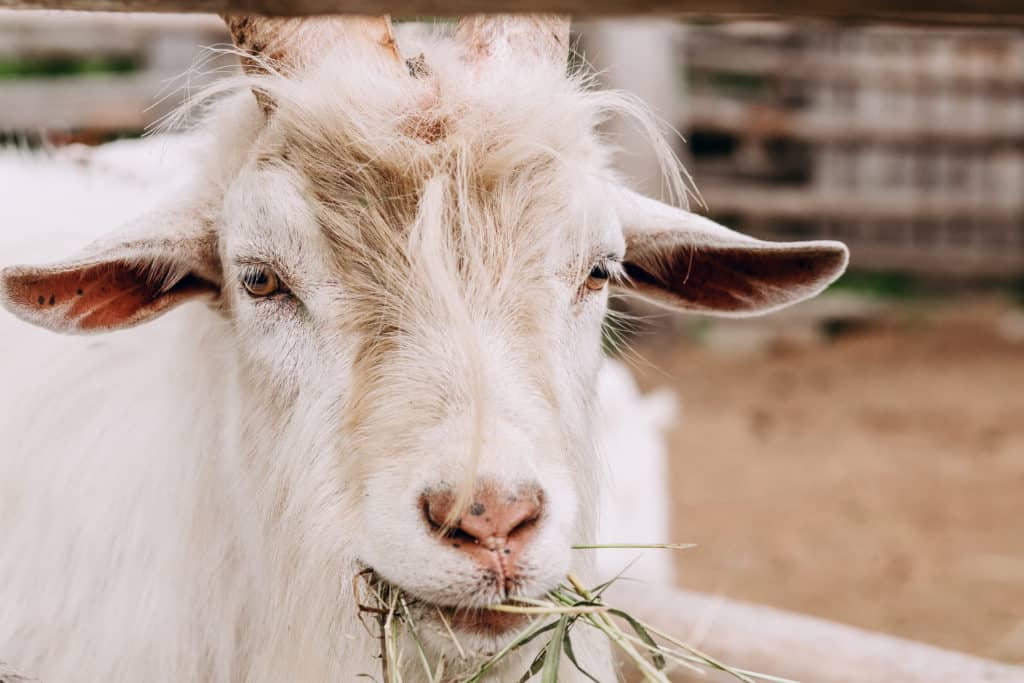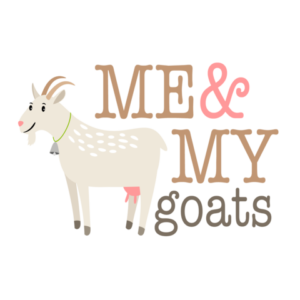
Goats love pine needles. Some people have experienced their goats literally climbing on top of one another to try and get to them, which aside from being adoreable shows just how cutthroat the little creatures can be.
Most pine needles are both edible and quite healthy for goats. Yew and Hemlock needles are the only exceptions to this, as both can be toxic for goats. Generally speaking though, pine needles are a fantastic treat for goats that they can eat as long as you don’t feed them too much.
Isn’t that great! But what makes goats like those needles so much, and what kinds of trees exactly should they be eating?
Why Do Goats Eat Trees?
We often think of goats as grazing animals like sheep or cows, but in actuality they’re more like foraging animals. This means that they love to search their living spaces for interesting things to eat like berries or roots, and will anything they think looks edible.
This includes small trees and fallen branches from decidious plants. In particular, goats like to eat the bark and the needles from these plants. But why do they find them so appealing?
Pine bark and needles contain a lot of vitamin C along with other useful vitamins and minerals that the goats need to survive. This makes them a nutritious snack for wild goats and a tasty treat for domestic ones.
How Much Pine Should A Goat Eat
Pine trees can be mildly poisonous to some animals, however, goats in particular need to eat a lot of pine to actually get sick from it in kind of the same way that humans would need to eat several pounds of almonds in order to get sick from cyanide poisoning.
The difference is that the pine tree poison takes a little bit of time to go through the goat’s system, so if you feed your goats pine needles every single day for an extended period of time they might get sick.

That being said, if you have just eleven or twelve goats they can eat an entire Christmas tree in a week without seeing any side effects, so if you’re just feeding them a branch or two here and there it’s virtually impossible that your goats will get sick from it.
They’re far more likely to get sick from interrupting their usual diet than anything else, and ultimately they will probably end up just fine.
This is true for most kinds of trees in the pine family, although Yew and Hemlock (which aren’t technically pine trees even though they look like them) are very poisonous for goats to eat. You should definitely make sure that you aren’t feeding the goats those specific trees.
What About Christmas Trees?
Most live Christmas trees are some kind of pine tree, although occasionally people will sell Yew trees instead so it’s a good idea to ask the people you’re buying the tree from.
Aside from that, if you plan on feeding your tree to goats after you’re done with it, you should probably make sure that the tree hasn’t been treated with chemicals. In the United States, many Christmas tree sellers like to spray their trees with fire retardants and other various chemicals.
These probably won’t kill your goats as they tend to be no more toxic than household cleaners, but they will probably make your goats sick and that would be a bad thing.
Because of this, it’s always best to ask around until you find a seller who doesn’t use any chemicals.
Other Farm Animals
Chickens like to play with pine needles and definitely won’t be upset to find some new branches in their enclosure to explore. Cows, however, are very susceptible to pine poisoning, which can easily cause miscarriages in pregnant cows.
Sheep can eat pine needles but don’t like them nearly as much as goats do.
Actually, people can eat pine needles too. As long as they haven’t been sprayed with pesticides they can be eaten without fear as long as you don’t eat, like, a ton of them.
Younger needles tend to have a milder flavor, which is great for using in cooking. So I mean, I guess you can feed them to pretty much anything but cows including your own children.
Most of these needles can also be used to make tea, and many people claim that they have medicinal purposes. Whether they do or not, they can definitely be delicious.
Just a caution though, all of the animals (including humans) listed above are still vulnerable to yew and hemlock, which means that no matter what if you plan to feed needles to something you need to be careful to avoid accidental poisonings.
What Shouldn’t Goats Eat
Maybe a better question than what things goats can eat is what things goats can’t eat. They seem to like eating the vast majority of things, but in actuality there is a large variety of things that seem like goats should be able to eat them but actually are toxic to them.
Aside from meat, which goats can’t eat because they are herbivores, many commonly found plants can also be dangerous to goats.
Along side trees like Yew and hemlock, oak trees can also be incredibly dangerous for goats and can cause both kidney and liver problems. Azaleas are another kind of tree which goats probably shouldn’t eat, and they can cause heart problems.

Goats also have a hard time with wild plants like poppies, parsnips, and horse nettle. Goats will eat them if given the chance, although as long as you’re feeding them enough they probably won’t be desperate enough to try.
How To Feed Pine To Goats
The best way to feed bits of your trees to your goats is for you to use a saw to carefully cut off a few of the branches. It’s important to use a saw because simply breaking branches off of the tree can cause the tree to pick up dangerous parasites.
Once you have a good number of branches, simply scatter them across the place where the goats generally eat for them to find or feed them to goats by hand. Either way, the goats will be happy to recieve an exciting treat!
